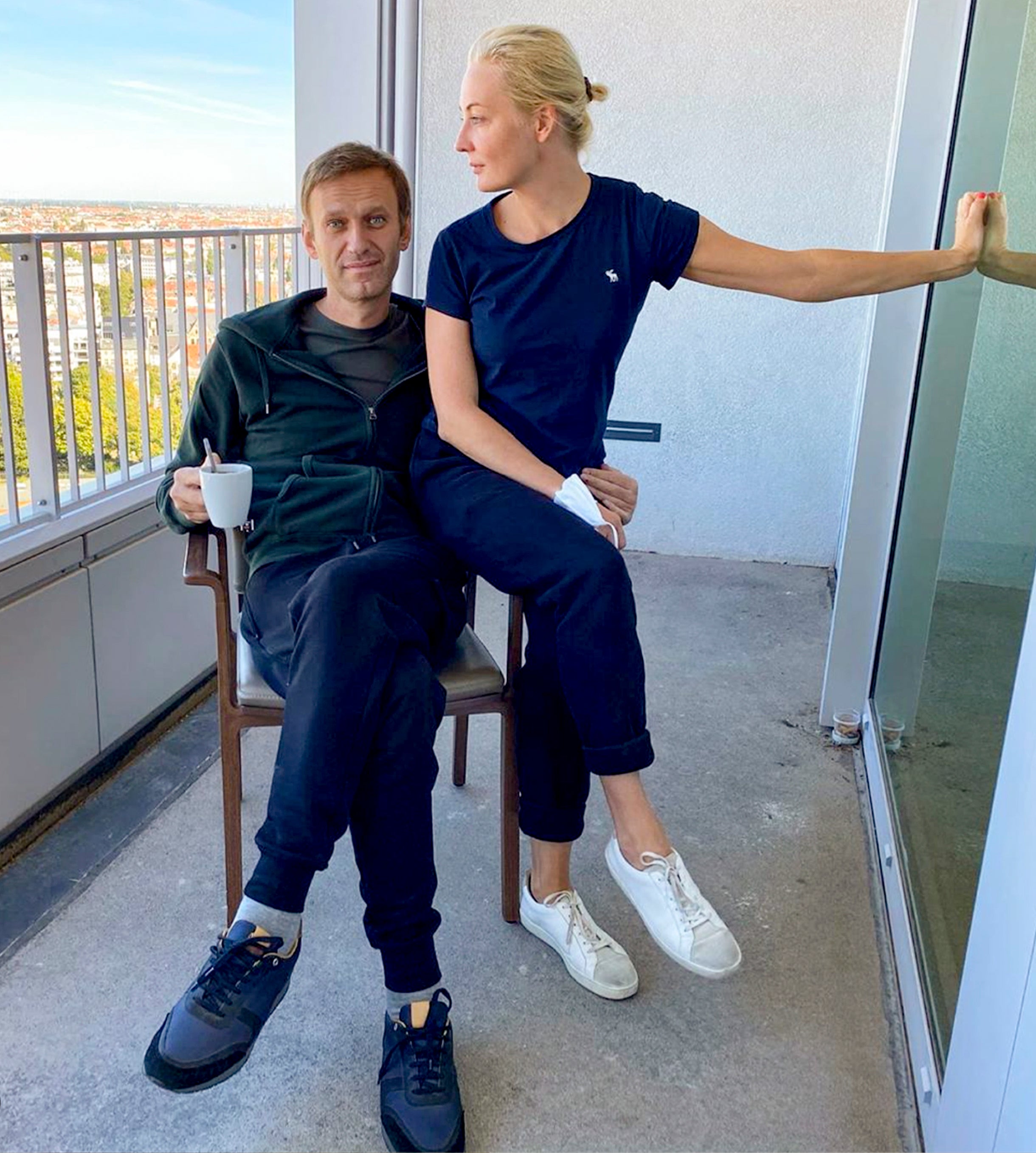Navalny says nerve agent was found 'in and on' his body
Russian opposition leader Alexei Navalny has demanded that Russia return the clothes he was wearing on the day he fell into a coma, calling it a “crucial piece of evidence” in his poisoning

Your support helps us to tell the story
From reproductive rights to climate change to Big Tech, The Independent is on the ground when the story is developing. Whether it's investigating the financials of Elon Musk's pro-Trump PAC or producing our latest documentary, 'The A Word', which shines a light on the American women fighting for reproductive rights, we know how important it is to parse out the facts from the messaging.
At such a critical moment in US history, we need reporters on the ground. Your donation allows us to keep sending journalists to speak to both sides of the story.
The Independent is trusted by Americans across the entire political spectrum. And unlike many other quality news outlets, we choose not to lock Americans out of our reporting and analysis with paywalls. We believe quality journalism should be available to everyone, paid for by those who can afford it.
Your support makes all the difference.Russian opposition leader Alexei Navalny demanded Monday that Russia return the clothes he was wearing on the day he fell into a coma in Siberia, calling it “a crucial piece of evidence” in the nerve agent poisoning he is being treated for at a German hospital.
In a blog post Monday, Navalny said the Novichok nerve agent was found “in and on” his body, and said the clothes taken off him when he was hospitalized in Siberia a month ago after collapsing on a Russian flight are “very important material evidence.”
“I demand that my clothes be carefully packed in a plastic bag and returned to me,” the 44-year-old politician and corruption investigator wrote.
Navalny, Russian President Vladimir Putin's fiercest critic, fell ill on a domestic flight to Moscow on Aug. 20, was brought to a hospital in the Siberian city of Omsk and was transferred to Germany for treatment two days later. A German military lab later determined that the Russian politician was poisoned with Novichok, the same class of Soviet-era agent that Britain said was used in 2018 on a former Russian spy and his daughter in England.
Navalny was kept in an induced coma for more than a week while being treated with an antidote. Last week the hospital in Berlin reported taking him off the ventilator as his condition improved. Navalny has since posted several photos of himself in the hospital, saying he is recovering his verbal, mental and physical abilities.
In a statement Monday, Navalny blasted Russian authorities for not launching a criminal probe into what happened to him.
“There is no criminal case in Russia, there is a ‘preliminary inquiry regarding the fact of hospitalization.' It looks as if I didn't fall into a coma on a plane, but rather tripped in a supermarket and broke my leg,” Navalny wrote.
The Kremlin has repeatedly said they see no grounds for a criminal case, as Russian labs and the hospital in Omsk found no indications of poisoning. Other European labs have backed Germany's stance that Navalny was poisoned with independent tests of their own.
Germany’s conclusion that Navalny had been poisoned has fueled tensions between Russia and the West. German Chancellor Angela Merkel called Navalny’s poisoning an attempted murder, meant to silence Putin’s most prominent foe.
Moscow has demanded that Germany provide its evidence and bristled at the urging of Merkel and other Western leaders to answer questions about what happened to Navalny.
“There is too much absurdity in this case to take anyone at their word,” Kremlin spokesman Dmitry Peskov said Friday.
Earlier this month, Merkel’s office indicated that she might be willing to rethink the fate of the Nord Stream 2 pipeline that will bring Russian gas to Germany under the Baltic Sea — a sign of Berlin’s growing frustration over Moscow’s stonewalling about the Navalny case.
Other Western countries joined Germany in calling for a full investigation, with British Prime Minister Boris Johnson calling the use of a chemical weapon “outrageous.” White House press secretary Kayleigh McEnany has called the poisoning “completely reprehensible,” adding that the U.S. was “working with our allies and the international community to hold those in Russia accountable.”